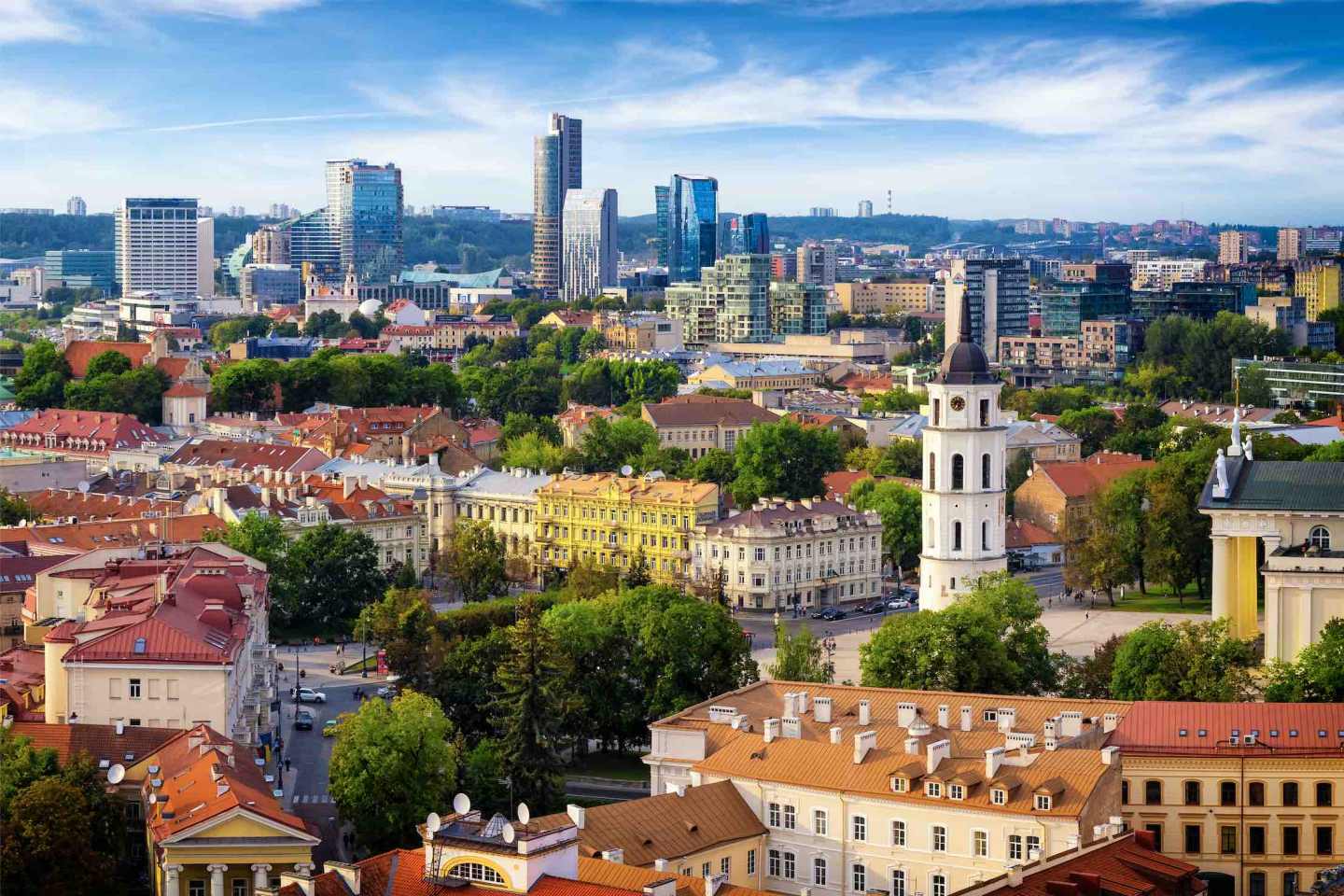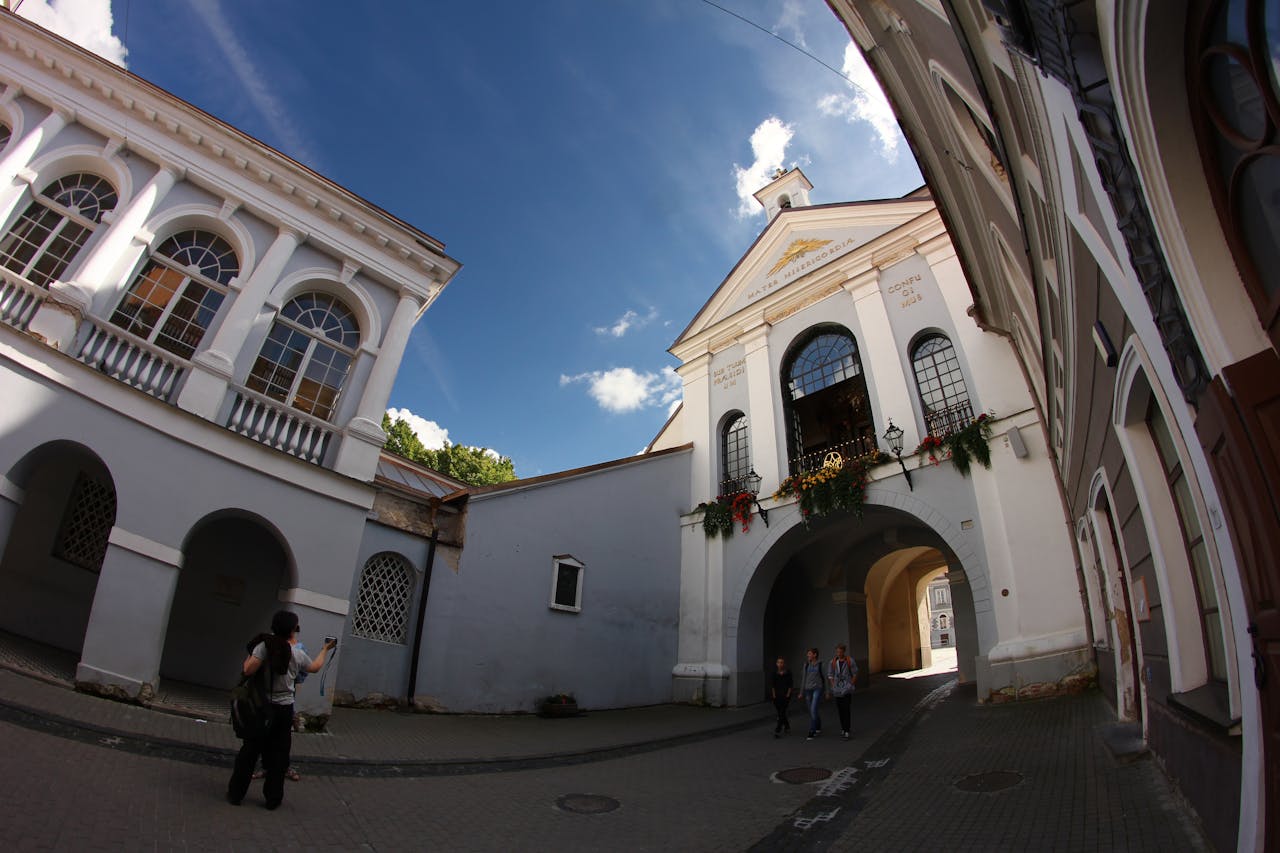Badania rynku na Litwie

Have you ever wondered about the untapped potential of market research in Lithuania? With its rich cultural heritage and strategic location, this Baltic nation holds numerous opportunities for businesses looking to expand their reach. By delving into the intricacies of this region’s consumer behavior and economic trends, businesses can unlock new pathways to growth and success.
What Is Market Research in Lithuania?
Market research in Lithuania analyzes consumer behavior, market trends, and competitive landscapes within the Lithuanian market. This process enables businesses to make informed decisions by understanding local consumers’ preferences, needs, and purchasing patterns. Whether studying the demand for specific products or assessing the competitive positioning of industry players, market research in Lithuania provides valuable insights that drive strategic planning and business growth.
Why Do Businesses Need Market Research in Lithuania?
Understanding the local market landscape is essential for identifying opportunities and mitigating risks. By conducting comprehensive research, businesses can gain insights into consumer preferences, purchasing behaviors, and cultural nuances influencing buying decisions.
Moreover, market research in Lithuania helps businesses tailor their products or services to meet specific market demands. This customization is crucial for achieving market fit and ensuring long-term success in Lithuania. Additionally, with the constantly evolving competitive environment, businesses must stay informed about industry trends, competitor strategies, and regulatory changes through ongoing market research efforts.
Investing in market research also facilitates effective resource allocation. By focusing investments on areas with high growth potential and demand, businesses can optimize their operational efficiency and maximize returns on investment. Furthermore, market research in Lithuania provides a basis for strategic decision-making, guiding product development, pricing strategies, and marketing campaigns to resonate with the target audience.
When to Conduct Market Research in Lithuania

Determining the optimal timing for market research in Lithuania is crucial for maximizing its effectiveness and impact on business decisions. Here are key scenarios when businesses should consider conducting market research:
1. Market Entry or Expansion: Before entering a new market or expanding operations in Lithuania, businesses should conduct comprehensive market research. This includes assessing market size, competitive landscape, regulatory environment, and consumer preferences to inform market entry strategies.
2. New Product or Service Launch: Businesses should gather insights through market research before introducing a new product or service to the Lithuanian market. Understanding customer needs, pricing expectations, and product features ensures a successful launch and minimizes risks associated with product failure.
3. Competitive Analysis: Regular market research in Lithuania is essential for monitoring competitors and identifying market trends. Businesses should conduct ongoing competitive analysis to stay ahead of industry developments and adjust strategies accordingly.
Kluczowe branże
The manufacturing sector is the key industry. In fact, there are over 900 food processing companies in this country. Lithuania also produces many goods, including fruits, fish, meat, veggies, and spices. It also supplies chemical products to many of its trading partners. Here are some other prominent sectors and notable companies within each industry:
1. Information Technology (IT) and Software Development:
-
- Lithuania has a thriving IT sector known for its software development, fintech, and cybersecurity expertise. Notable companies include NFQ Technologies, Telia Lietuva, and Vinted, an e-commerce platform.
2. Manufacturing and Engineering:
-
- The manufacturing sector in Lithuania specializes in electronics, automotive components, and machinery production. Key players include Vilniaus Prekyba Group, Elinta Motors, and Thermo Fisher Scientific.
3. Finance and Banking:
-
- Lithuania is emerging as a fintech hub within the European Union, attracting investment and startups in financial technology. Leading financial institutions include SEB Bank, Swedbank, and Paysera.
4. Retail and Consumer Goods:
-
- The retail sector is dominated by major players like Maxima Group, which operates the largest retail chain in the Baltics. Other notable retailers include Rimi and IKI.
5. Renewable Energy and Sustainability:
-
- Lithuania is committed to renewable energy production, with wind energy and biomass investments. Companies like Ignitis Group (formerly Lietuvos Energija) lead the way in renewable energy initiatives.
Largest-Growing Segments in Lithuania

Lithuania’s economy is characterized by several rapidly growing segments that drive innovation, investment, and economic diversification. Here are some of the largest-growing segments and their significance:
1. Fintech and Financial Services: Lithuania has emerged as a prominent fintech hub within the European Union, attracting startups and investment in financial technology. The sector encompasses digital banking, payments, blockchain, and regulatory technology (RegTech).
2. ICT (Information and Communication Technology): The ICT sector in Lithuania continues to expand, supported by a skilled workforce and a strong focus on innovation. Growth areas include software development, cybersecurity, cloud computing, and data analytics.
3. Biotechnology and Life Sciences: Lithuania’s biotechnology sector is experiencing rapid growth, driven by research and development in pharmaceuticals, medical devices, and biopharmaceuticals. The country boasts a robust biotech ecosystem with academic-industry collaborations.
4. Renewable Energy and Green Technologies: Lithuania is committed to renewable energy production, with investments in wind energy, solar power, and biomass. The shift towards green technologies aligns with sustainability goals and attracts investment in clean energy projects.
5. E-commerce and Digital Retail: The e-commerce sector in Lithuania is expanding rapidly, fueled by increasing internet penetration and changing consumer behavior. Local and international e-commerce platforms are driving growth in online retail sales.
6. Tourism and Hospitality: Lithuania’s tourism industry is experiencing growth, supported by the country’s cultural attractions, natural beauty, and improved infrastructure. Investments in tourism infrastructure and promotion are boosting visitor numbers.
7. Health and Wellness Services: Lithuania has a rising demand for health and wellness services, driven by changing lifestyles and increasing health awareness. This includes fitness centers, spa resorts, medical tourism, and wellness-focused products.
Main Tourist Attractions in Lithuania
Lithuania is the largest of the three Baltic States. The Baltic Sea is to the west because it’s a Baltic State. Four other countries surround it: Latvia to the north, Belarus to the east and south, and Poland to the south and southwest. Russia, of course, is to the west.
Vilnius is the capital city, and it is pretty extensive, covering an area of 250 square miles. Vilnius was the first Baltic city to invest in long-term tangible assets. Furthermore, this city has well-known buildings like the Mickiewicz Museum, Church of All Saints, and The National Museum. This city is also the cultural center of the country.
Here are seven must-visit tourist attractions in Lithuania:
1. Vilnius Old Town: Vilnius Old Town is a UNESCO World Heritage Site known for its picturesque cobblestone streets, medieval architecture, and charming squares. Highlights include Vilnius Cathedral, Gediminas Castle Tower, and the bohemian Užupis district.
2. Trakai Island Castle: Located on an island in Lake Galvė near Vilnius, Trakai Island Castle is a stunning example of medieval architecture. Visitors can explore the castle museum and enjoy scenic boat rides on the lake.
3. Hill of Crosses (Kryžių Kalnas): This unique pilgrimage site features thousands of crosses and religious symbols representing faith and resilience. It’s a deeply spiritual place with a powerful atmosphere.
4. Curonian Spit (Kuršių Nerija): This UNESCO-listed spit is a narrow strip of land separating the Curonian Lagoon from the Baltic Sea. Visitors come here for its pristine sand dunes, unique landscapes, and recreational activities.
5. Kaunas Old Town: Kaunas Old Town is characterized by well-preserved Gothic, Renaissance, and Baroque architecture. Don’t miss landmarks like Kaunas Castle, the Town Hall Square, and the Pazaislis Monastery.
6. Palanga Amber Museum and Botanical Park: Located in the coastal town of Palanga, this museum showcases a stunning collection of amber artifacts. The surrounding botanical park offers a peaceful retreat with beautiful gardens and walking trails.
7. Hill of Witches (Raganų Kalnas): Situated in Juodkrantė on the Curonian Spit, the Hill of Witches features wooden sculptures depicting characters from Lithuanian folklore. It’s a whimsical and enchanting place to explore.
Nasz aktualny przegląd rynku i rekomendacje

We believe Lithuania’s economy has demonstrated resilience and steady growth, driven by technology, renewable energy, and manufacturing sectors. The country’s strategic location within the European Union makes it an attractive international trade and investment hub.
Additionally, Lithuania offers favorable conditions for foreign investment, supported by a skilled workforce, competitive labor costs, and government incentives. Growth opportunities exist in fintech, e-commerce, green technologies, and tourism.
Zalecenia:
- Businesses should leverage market research to gain insights into evolving consumer preferences and market dynamics.
- Strategic partnerships and collaborations can facilitate market entry and expansion initiatives.
- Investing in digital capabilities and innovation will be key to competitiveness in Lithuania’s rapidly evolving business landscape.
Reasons to Grow Your Business in the Lithuanian Market
There are many reasons why you should invest your business in this market.
For one thing, this country is part of the EU and is, in essence, one of the fastest-developing countries there. In addition, the taxes in this country are favorable to business start-ups. Also, start-up companies receive support regardless of the time the business has been operating.
Do you want to start a tech company? This country is full of tech talent. It also has one of the fastest internet connections in the world. The people are also creating new and improved tech-based products. This country is one of the largest Fintech hubs in the EU, judging from the number of licensed companies. It is the perfect place to invest in a tech-based company.
Moreover, the government has introduced a start-up visa for foreign investors. This visa permits persons who want to establish a business to live in Lithuania. Registering a company in Lithuania is low-cost and easy.
Opportunities in Lithuania for Businesses
Lithuania presents several compelling opportunities for businesses looking to establish or expand their regional presence. Here are key factors driving business opportunities in Lithuania:
- Wykwalifikowana siła robocza: The country boasts a well-educated and skilled workforce, particularly in IT, engineering, and life sciences, providing a talent pool for businesses seeking specialized expertise.
- Growing Fintech Hub: Lithuania’s emergence as a fintech hub presents opportunities in digital banking, payments, and regulatory technology, supported by favorable regulatory frameworks.
- Wzrost e-commerce: The increasing adoption of e-commerce presents opportunities for businesses to tap into the growing online retail market and leverage digital platforms for sales and distribution.
- Renewable Energy Investments: Lithuania’s focus on renewable energy and sustainability opens opportunities for businesses in green technologies, including wind energy, solar power, and energy efficiency solutions.
- Rozwój turystyki: The tourism sector is growing, driven by cultural heritage, natural attractions, and improving infrastructure, offering opportunities in hospitality, travel services, and related industries.
Challenges of Doing Business in Lithuania
While Lithuania offers promising opportunities for business growth, several challenges must be navigated by organizations entering or operating in the market. Here are key challenges faced by businesses in Lithuania:
- Limited Market Size: Lithuania’s relatively small market size can pose challenges for businesses seeking scale and expansion. Companies may need to explore regional or international markets to achieve significant growth.
- Dependence on Export Markets: Lithuania’s economy is export-oriented, making it susceptible to external market fluctuations and global economic trends.
- Infrastructure Development Needs: Infrastructure improvements, particularly in transportation and logistics, are ongoing, and businesses may face challenges related to connectivity and distribution networks.
- Language and Cultural Differences: Language barriers and cultural nuances can challenge foreign businesses in communication, customer engagement, and market penetration.
- Competition from Regional Players: Lithuania’s proximity to other Baltic and European countries means businesses face competition from regional players, requiring differentiation strategies and strong market positioning.
Industry Attractiveness: SWOT Analysis of the Lithuanian Market
Conducting a SWOT (Strengths, Weaknesses, Opportunities, Threats) analysis provides valuable insights into the overall attractiveness and competitiveness of the Lithuanian market for businesses. Here’s a comprehensive SWOT analysis:
Mocne strony:
- Strategiczne położenie: Lithuania’s strategic location within the EU facilitates access to broader European markets and international trade routes.
- Wykwalifikowana siła robocza: The country boasts a well-educated and technically skilled workforce, particularly in IT, engineering, and life sciences.
- Business-Friendly Environment: Lithuania offers competitive tax rates, streamlined regulations, and government incentives to attract foreign investment.
- Growing Fintech Hub: The emergence of Lithuania as a fintech hub presents opportunities in digital banking, payments, and regulatory technology.
- Renewable Energy Focus: Lithuania is committed to renewable energy, creating opportunities in green technologies and sustainable practices.
Słabości:
- Market Size Limitations: The relatively small domestic market size can limit growth opportunities for businesses seeking scale.
- Bureaucratic Processes: Bureaucratic procedures and regulatory complexities may pose challenges, especially for foreign investors.
- Niedobory umiejętności: Certain sectors face shortages in highly specialized areas, impacting talent acquisition and development.
- Infrastructure Development Needs: Infrastructure improvements are needed, particularly in transportation and logistics.
Możliwości:
- Wzrost e-commerce: Increasing adoption of e-commerce presents opportunities for businesses to tap into the expanding online retail market.
- Rozwój turystyki: The growing tourism sector offers hospitality, travel services, and industry opportunities.
- Startup Ecosystem: A vibrant startup ecosystem fosters innovation, collaboration, and investment opportunities.
- Health and Wellness Market: Rising demand for health and wellness services opens avenues for businesses in fitness, wellness products, and medical tourism.
- EU Funding: Access to EU funding supports business development and infrastructure projects.
Zagrożenia:
- External Market Dependency: Lithuania’s export-oriented economy is susceptible to external market fluctuations and global economic trends.
- Competition from Regional Players: Proximity to other Baltic and European countries brings competition from regional players, requiring strong market positioning.
- Zmiany regulacyjne: Changes in regulatory frameworks or EU policies can impact business operations and investment decisions.
- Niepewność gospodarcza: Economic instability or geopolitical factors may threaten business continuity and investment attractiveness.
How SIS International’s Market Research in Lithuania Helps Businesses
SIS Międzynarodowy offers comprehensive market research and consulting services tailored to empower businesses operating in Lithuania. Here’s how our services benefit organizations seeking growth and success in the Lithuanian market:
Redukcja ryzyka:
SIS identifies market trends, competitive landscapes, and regulatory changes, enabling businesses to mitigate risks and make informed decisions.
Zwiększanie przychodów:
By understanding customer preferences and market demands, businesses can optimize product offerings and marketing strategies to drive revenue growth.
Oszczędność pieniędzy:
Strategic insights from our research help businesses allocate resources efficiently, minimize wastage, and maximize ROI in marketing, product development, and operations.
Oszczędność czasu:
Leveraging our research expertise saves businesses valuable time by providing actionable insights and eliminating the need for trial-and-error approaches.
Przyspieszenie wzrostu i innowacji:
Our market intelligence fuels innovation by uncovering unmet needs and emerging trends, facilitating product development and market expansion strategies.
Zwiększanie zwrotu z inwestycji (ROI):
By aligning strategies with market realities, businesses can enhance their ROI across various functions.
Lokalizacja naszego obiektu w Nowym Jorku
11 E 22nd Street, piętro 2, Nowy Jork, NY 10010 T: +1(212) 505-6805
O firmie SIS International
SIS Międzynarodowy oferuje badania ilościowe, jakościowe i strategiczne. Dostarczamy dane, narzędzia, strategie, raporty i spostrzeżenia do podejmowania decyzji. Prowadzimy również wywiady, ankiety, grupy fokusowe i inne metody i podejścia do badań rynku. Skontaktuj się z nami dla Twojego kolejnego projektu badania rynku.


